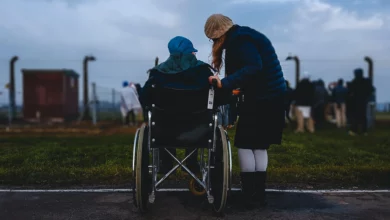Candace Owens Tennessee hospital: An Ultimate Guide

Candace Owens Tennessee hospital – Conservative commentator and author Candace Owens recently made headlines after she was hospitalized with COVID-19 in Tennessee. Owens, who has been a vocal critic of COVID-19 vaccines and pandemic-related restrictions, took to social media to share updates on her health and raise questions about the efficacy of the vaccines.
Hospitalization and Treatment at Candace Owens Tennessee hospital
On April 16, 2021, Owens announced on her Instagram account that she had contracted COVID-19 and was experiencing “very mild symptoms.” However, her condition worsened over the next few days, and she was eventually admitted to a hospital in Nashville, Tennessee.
Owens shared details of her hospitalization on social media, stating that she had received treatment with intravenous vitamin C and zinc, as well as the anti-malaria drug hydroxychloroquine, which has been touted by some as a treatment for COVID-19 despite limited evidence of its efficacy.
Vaccine Skepticism
While Owens has since recovered from COVID-19 and been discharged from the hospital, she has continued to express skepticism about the COVID-19 vaccines. In a tweet on April 24, 2021, she wrote, “I’m not vaccinated and will never be vaccinated. The whole thing is a scam.”
Owens has long been critical of pandemic-related restrictions and vaccine mandates, arguing that they infringe on individual freedoms and personal choice. Her hospitalization has only served to reinforce her beliefs and raise questions about the efficacy of the vaccines.
Response and Criticism
Owens’ comments and actions have drawn strong reactions from both supporters and critics. Some have praised her for standing up for individual freedom and speaking out against what they see as government overreach. Others, however, have criticized her for spreading misinformation and potentially endangering public health by discouraging people from getting vaccinated.
The hospital where Owens received treatment, Williamson Medical Center, has also faced criticism for its decision to prescribe hydroxychloroquine for COVID-19 treatment. The drug has not been shown to be effective against COVID-19 and has potentially harmful side effects.
Informed Decisions
Informed decisions are decisions that are made based on accurate and reliable information, as well as careful consideration of the potential risks and benefits of a particular course of action. In the context of healthcare, making informed decisions is particularly important as it can impact not only the individual making the decision, but also their loved ones and the wider community.
In the case of COVID-19 vaccines, making an informed decision requires understanding the science behind the vaccines, their safety and efficacy profiles, as well as any potential risks and side effects. It also involves understanding the potential consequences of not getting vaccinated, both for oneself and for others who may be more vulnerable to the virus.
Making informed decisions also involves seeking out reliable sources of information and guidance, such as healthcare professionals or reputable public health organizations. It is important to be wary of misinformation and conspiracy theories, which can spread quickly on social media and other platforms.
Ultimately, making informed decisions is about taking responsibility for one’s own health and well-being, as well as being a responsible member of the wider community. By staying informed, asking questions, and seeking out reliable information, individuals can make choices that are in their best interest and the best interest of those around them.
Conclusion
Candace Owens’ hospitalization and subsequent comments have reignited debates about COVID-19 vaccines and pandemic-related restrictions. While opinions on the issue remain divided, it is important for individuals to make informed decisions about their health and safety based on reliable information and guidance from medical professionals.
It is also important for hospitals and healthcare providers to prioritize evidence-based treatments and avoid potentially harmful or ineffective interventions. As the pandemic continues to evolve, it is crucial for all stakeholders to work together to promote public health and safety.
For more useful insights, check the rest of our blog.




